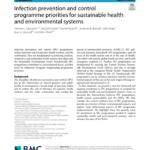The Climate Change Minister has received a briefing from environment officials stating that New Zealand is not on track to achieve its target of reducing net greenhouse emissions to half of 2005 levels by 2030. The briefing also highlighted that planet-heating gases have only fallen by 6 percent since their peak in 2006, while air temperatures, ocean acidity, and sea temperatures continue to rise.
The briefing also mentioned the significant economic impact of droughts in the summers of 2008 and 2013, which cost the rural sector $4.8 billion. Minister Simon Watts was informed that New Zealand’s international climate commitment for 2030 requires much greater emissions cuts than what is mandated by domestic legislation.
The government now faces a decision on whether to scale up domestic action or rely on international negotiations to purchase carbon credits. While the previous government planned to sign deals with countries in Asia and the Pacific to pay for renewable energy projects that would contribute to meeting New Zealand’s 2030 target, the current government has been hesitant about committing to buying international credits.
Meeting the emissions target solely through domestic carbon cuts would be a challenging task that requires significant changes in direction. Treasury estimates that purchasing credits from overseas to achieve the necessary 100 million tonnes in carbon cuts could cost anywhere between $3.3 billion and over $23 billion by 2030. Despite the potential cost, it is believed that buying credits would be cheaper and easier than implementing rapid changes within New Zealand, according to modeling by the Climate Change Commission.
The briefing also revealed that environmental spending is under pressure, leading the Ministry for the Environment to review its operating model to save money. However, funding capability for the independent Climate Change Commission is considered a “key risk” as it faces a busy year advising on emissions plans, farming gases, and other related matters.



